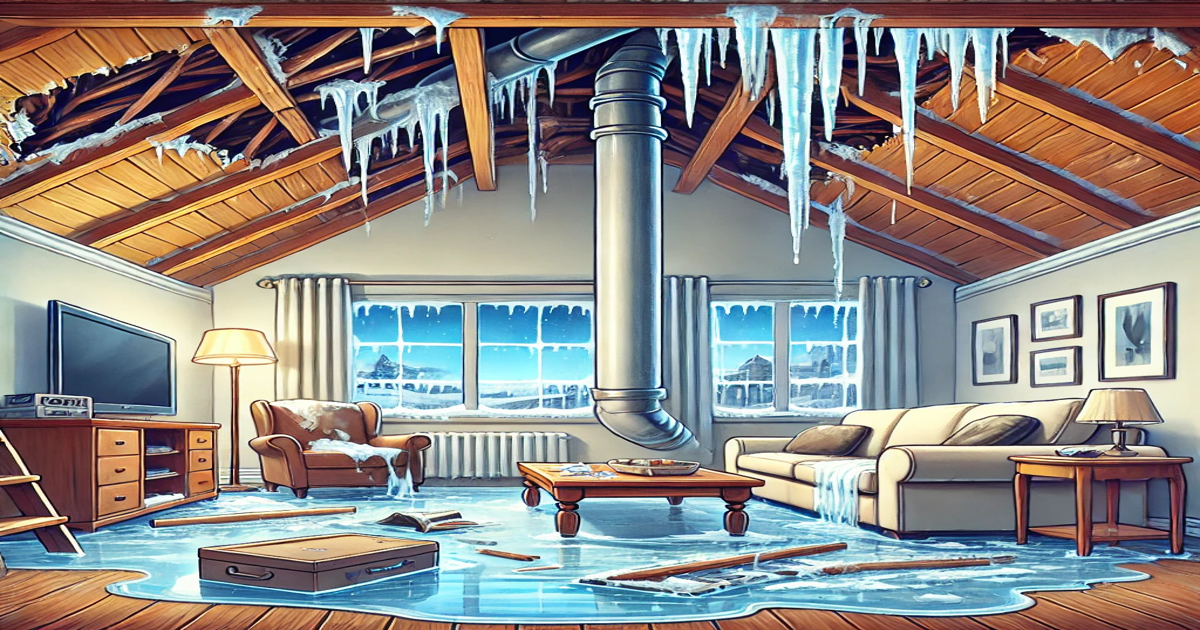
Frozen Pipe Fiasco
Hey there! Welcome back to the blog, where we dive into everyday insurance situations to help make sense of the claims process. Today, we’re cooking up a scenario that no one wants on their recipe list—a “Kitchen Catastrophe.” Picture this: you’re whipping up dinner, and before you know it, your kitchen goes from a place of delicious smells to one filled with smoke and flames. Let’s talk about what happens next, what your insurance can do for you, and how to make sure you’re covered for the costs of getting your home (and life) back to normal.
Scenario: “Kitchen Catastrophe”
So, here’s the deal: you’re in the middle of cooking, maybe making that famous family recipe, when you get distracted for a second. That’s all it takes for a fire to start on the stovetop. The flames spread fast, leaving you scrambling to call 911. The fire department arrives and takes care of the blaze, but now you’ve got a whole other problem—your kitchen is a mess, cabinets are charred, smoke damage is everywhere, and your house smells like burnt toast times a thousand.
And, to top it off, the damage is so bad you can’t even stay at home. Now you’re looking at repairs, replacements, and figuring out where you’re going to live while all this gets sorted out. Time to file a claim and see how your insurance steps in to help you out!
Here’s What to Do Next:
- Contact Your Insurance Company ASAP
The quicker you call your insurer, the sooner they can get the ball rolling on your claim. Most policies cover fire damage, but you’ll want to start the process as soon as possible. - Document Everything
Grab your phone and start taking pictures or videos of the damage—before you clean up anything. This visual evidence is going to be your best friend when the insurance adjuster asks for details. - Make Temporary Repairs (If It’s Safe)
Think things like boarding up a broken window or turning off the gas—whatever keeps the damage from getting worse. But don’t go all out on the repairs just yet. Save the big stuff for when the adjuster has seen everything. Keep receipts for any temporary repairs you do; you might get reimbursed. - Find a Place to Stay & Keep Receipts
Since your house is out of commission, you’ll need a temporary place to live. Hotels, Airbnb, or even bunking at a friend’s place—make sure to keep records of all those expenses. Your policy probably has coverage for additional living expenses (ALE), which should help cover these costs. - Review Your Coverage Details
Now’s a good time to brush up on your policy. You’ll want to check the limits for dwelling coverage (repairs), personal property (damaged belongings), and additional living expenses (where you’re staying now). Knowing what your policy covers helps avoid surprises down the line. - Work with the Adjuster
The insurance company will send an adjuster to assess the damage. Show them everything—photos, videos, damaged items, and receipts. Be prepared with an inventory of damaged goods, including the value of each item, if you have it.
Conclusion
Dealing with a kitchen fire is a stressful situation, no doubt. But knowing what steps to take and how your insurance policy can help you through it can make a big difference. Remember, the key is to act fast, document everything, and know what your coverage includes. Insurance is there to help put your life back together when things go up in smoke (literally).
Thanks for hanging out with us today! Stay safe in the kitchen, keep those fire extinguishers handy, and we’ll catch you next time with more practical tips and scenarios.